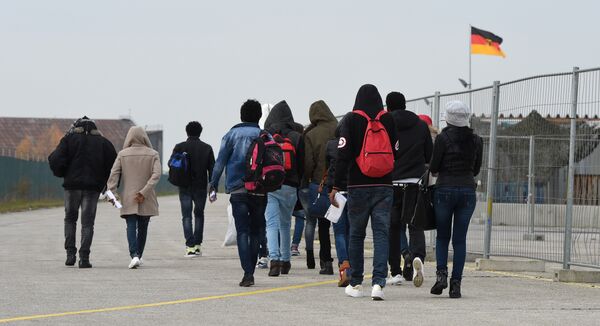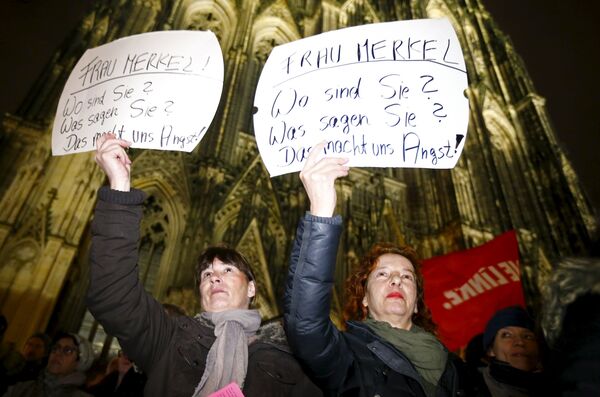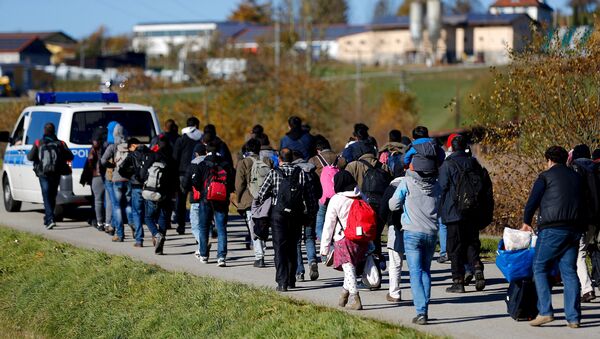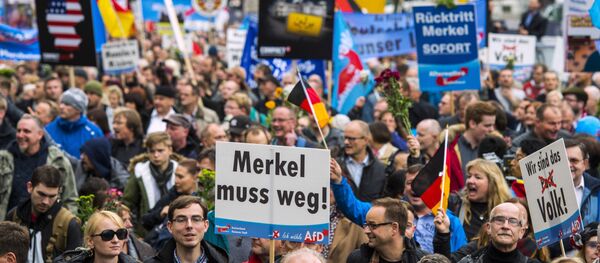In the whole of 2015, 8,913 migrants were stopped from entering Germany. This was back when Chancellor Angela Merkel was the celebrated darling of Europe, thanks in part to her compassion towards migrants and refugees.
Germany announced that all Syrian asylum seekers were welcome to remain in Germany, suspending a 1990 protocol, which states that refugees should seek asylum in the first European country in which they set foot.
Her humanitarian gesture was summed up by Merkel's phrase "Wir schaffen das" or "We can manage it."
It now seems that many of her compatriots disagree.
Merkel's initial optimism and hope that other EU countries would follow suit has since melted away.
@PLJK1984 @Arron_banks Have you been to Austria and Germany recently? I was there last week…numbers of migrants very noticeable.
— TOW (@TOW1983) December 5, 2016
In the ashes, the insidious growth of anti-immigrant sentiment and nationalist populism has grown. It's a phenomenon that has dominated many parts of the world in 2016, and Germany is by no means immune.
After flinging open the door, and more than 1.1 million refugees later, Germany is back-pedaling: fast.
According to the German Federal Office for Migration and Refugees, from January until the end of November 2016, 19,720 people were stopped from entering the country,more than double 2015's figure.
Afghan asylum seekers were turned back the most frequently, with 3,695 people affected in 2016 so far. 2,142 Syrians, 1,794 Iraqis and 1,237 Nigerians have also been stopped from entering Germany.
On top of this, around 55,000 migrants left Germany voluntarily last year, returning to their countries of origin. The largest number of those returning were from west Balkan states.
Politics is, in part, behind this significant policy shift.

Germany will hold its election in autumn 2017. Angela Merkel has already declared that she will run for her fourth term, yet her popularity has been severely dented by the perception that her open-door immigration policy was a mistake.
When asked HOW Europe could manage limitless immigration, #Merkel said "We will cope" Dead and broken bodies in Berlin suggest otherwise.
— David Vance (@DVATW) December 21, 2016
She has already seen a snapshot of this voter discontent in September 2016. Her center-right CDU party was hit with its worst-ever result in Berlin: a 17.6% share of the vote.
"If I could, I would turn back time for many, many years, to prepare better," Mrs. Merkel conceded.
The consequences of her lack of preparation are also social and cultural.
Germany has struggled to integrate some of the refugees and migrants who have arrived from the Middle East and North Africa. Issues such as women's rights have been polarizing.

Germany's tougher asylum laws were in response to the public outcry after a series of sex attacks on women allegedly by North African and Middle-Eastern migrants at New Year celebrations in Cologne, and other cities.
Although such high-profile negative attention focused on only a small minority of migrants, the public fall-out is ongoing.
Merkel's domestic spokesman has indicated that Germany intends to continue to manage border checks past an EU deadline of February 2017.
Fears are strong that EU summit in February won't lead to restoration of EU (external) border control mechanism:https://t.co/TGxpitC7F6
— What´s Next (@thatsnext) January 16, 2016
Stephan Mayer, told the Welt am Sonntag newspaper:
"I am convinced that border controls need to be urgently extended beyond February 2017 also.
"If the [EU] commission does not approve the extension, for which I have no understanding, the federal government must continue its own border controls on the Bavarian-Austrian border."




